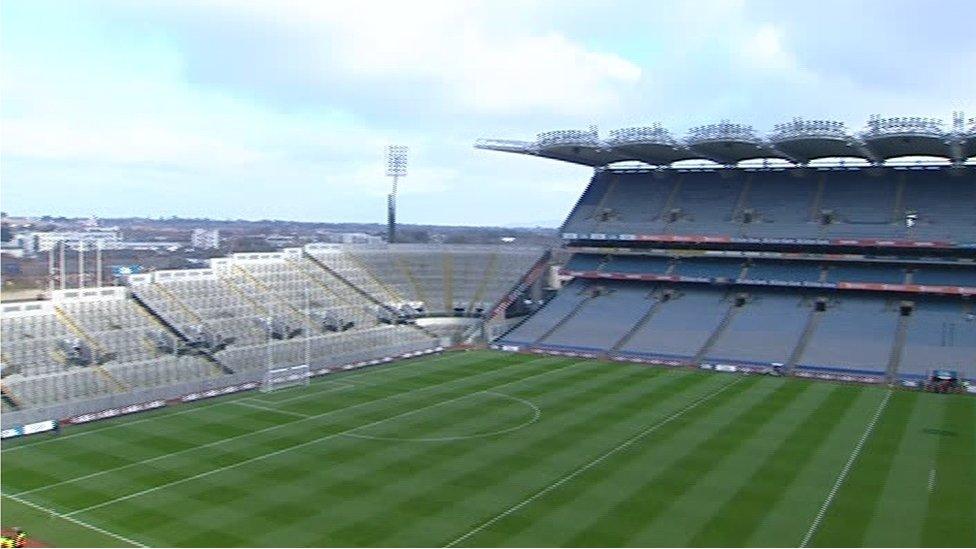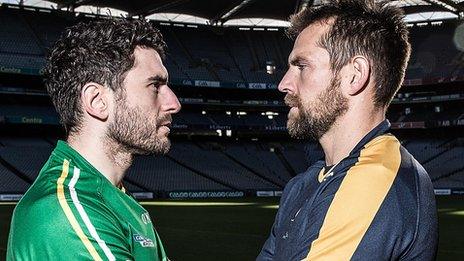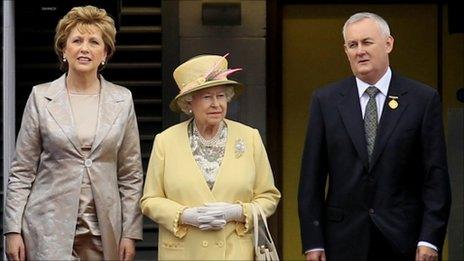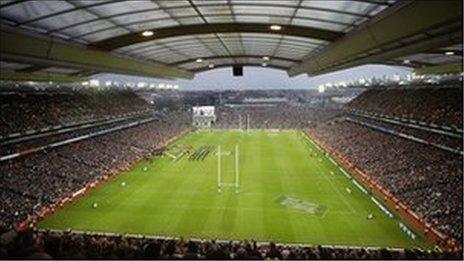Bloody Sunday 1920: GAA marks 95th anniversary of Croke Park killings
- Published

Croke Park stadium in Dublin is the headquarters of the GAA
The Gaelic Athletic Association (GAA) has marked the 95th anniversary of the British army killings of 14 people at a sports match in Dublin, which became known as Bloody Sunday.
The troops opened fire on the crowd at a GAA game on Sunday 21 November 1920.
The shootings took place during the Irish War of Independence.
The association marked the anniversary of the Croke Park stadium attack before Saturday's International Rules test between Ireland and Australia.
Wreath
The names of the victims were read out before the match, and 14 flames were lit in their memory.
The dead included 24-year-old GAA player Michael Hogan, after whom Croke Park's Hogan Stand is named.
Senior GAA staff laid a laurel wreath at the spot where he was shot.
The event is often referred to as the original Bloody Sunday, to distinguish it from the 1972 killings of 14 civilians by British troops in Londonderry during the Troubles.
Harrowing
The Croke Park attack has been a scar on Anglo-Irish relations for decades, but a visit by Britain's Queen Elizabeth to the stadium in 2011 was widely acknowledged as a powerful gesture of reconciliation.
Speaking ahead of Saturday's ceremony, GAA director general, Páraic Duffy, said: "The tragic loss of 14 lives on that fateful day, when almost 15,000 turned up to enjoy a football game between Dublin and Tipperary, was a harrowing moment for the association.
"While we have thankfully left those dark days behind us, it is only fitting that we honour the memory of those who were killed."
- Attribution
- Published20 November 2015

- Published18 May 2011

- Published18 May 2011
